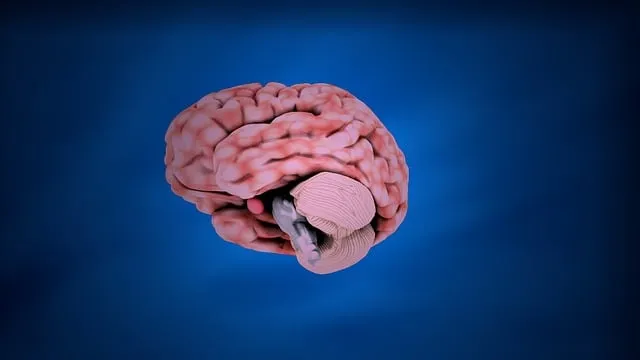Kaiser Permanente's training programs in Lone Tree promote holistic well-being through self-care practices like meditation, mindfulness, and compassion cultivation. These programs empower individuals to reduce stress, improve resilience, and enhance overall mental and physical health. Lone Tree leverages these insights for community transformation, aiming to reduce the stigma around mental illness and foster a culture where self-care is prioritized, particularly within the demanding healthcare profession, to prevent burnout among medical practitioners.
Self-care isn’t a luxury—it’s an essential foundation for overall well-being. In today’s fast-paced world, understanding and prioritizing self-care practices is more crucial than ever. This article explores various strategies to enhance your self-care routine, drawing insights from institutions like Kaiser Permanente and the transformative power of Lone Tree methodologies. Discover how comprehensive training programs and personalized growth paths can help you implement and sustain effective self-care practices for a healthier, happier life.
- Understanding Self-Care: The Foundation of Well-being
- Kaiser Permanente Training Programs: A Comprehensive Approach
- Lone Tree: Unlocking Personal Growth through Self-Care
- Implementing and Sustaining Effective Self-Care Practices
Understanding Self-Care: The Foundation of Well-being

Understanding self-care is paramount in fostering holistic well-being. It involves a proactive approach to nurturing your physical, mental, and emotional health, often highlighting practices that professionals like those at Kaiser Permanente Lone Tree emphasize through their training programs. These programs not only equip individuals with tools for self-care but also underscore its importance in risk management planning for mental health professionals.
Self-care routines development is a game-changer in bettering mental health. It includes various activities such as meditation, mindfulness exercises, and engaging in compassion cultivation practices. These strategies help reduce stress, improve resilience, and create a sense of balance. By integrating self-care into daily life, individuals can enhance their ability to handle challenges, ultimately contributing to improved overall well-being.
Kaiser Permanente Training Programs: A Comprehensive Approach

Kaiser Permanente Training Programs in Lone Tree offer a comprehensive approach to self-care and overall well-being. These programs are designed to empower individuals with practical tools and knowledge, focusing on both physical and mental health aspects. Through interactive workshops, experts guide participants on cultivating inner strength, promoting emotional well-being, and adopting sustainable habits for long-term wellness.
The Kaiser Permanente training covers a range of topics, including stress management techniques, mindfulness practices, and healthy lifestyle choices. Additionally, their Mental Wellness Podcast Series Production provides accessible resources, offering insights into various therapeutic approaches and self-care strategies. These initiatives aim to foster a supportive environment where individuals can learn, grow, and thrive, ultimately enhancing their quality of life in the Lone Tree community.
Lone Tree: Unlocking Personal Growth through Self-Care

In the realm of personal growth, Lone Tree stands as a beacon, offering transformative journeys through its innovative self-care practices. Inspired by Kaiser Permanente training programs, this unique approach focuses on holistic well-being, empowering individuals to unlock their true potential. By prioritizing mental health and mood management, Lone Tree goes beyond traditional care, aiming to dispel the Mental Illness Stigma Reduction Efforts that often hinder personal development.
Through tailored programs and public awareness campaigns development, they foster an environment where self-care is not just a practice but a lifestyle. Their methods cater to diverse needs, ensuring each individual finds their path to tranquility and resilience. This inclusive approach encourages folks to embrace their emotional well-being, leading to profound personal metamorphosis, much like dancing through a symphony of sights and sounds that resonate within.
Implementing and Sustaining Effective Self-Care Practices

Implementing effective self-care practices is a crucial step toward maintaining mental and physical well-being, as highlighted in the Kaiser Permanente training programs Lone Tree. These programs emphasize the importance of balancing work and personal life to prevent burnout, a common issue among healthcare professionals. By integrating self-care into daily routines, medical practitioners can enhance their resilience and improve patient care.
The key to sustaining these practices lies in adopting structured communication strategies within healthcare settings. Mental health professionals should prioritize open dialogue with colleagues and supervisors to discuss workload management, emotional support needs, and potential risks. Regular risk assessments, including those outlined in the Risk Assessment for Mental Health Professionals, can help identify early warning signs of burnout, enabling prompt intervention through tailored Burnout Prevention Strategies for Healthcare Providers.
Self-care is not just a trend, but a necessary practice for maintaining holistic well-being. As discussed, understanding the importance of self-care forms the foundation for improving one’s lifestyle. Both Kaiser Permanente training programs and Lone Tree methodologies offer comprehensive tools to unlock personal growth through self-care. By implementing these practices consistently, individuals can enhance their mental, physical, and emotional health. Remember that effective self-care is sustainable when tailored to individual needs, making it a lifelong journey of discovery and transformation.





